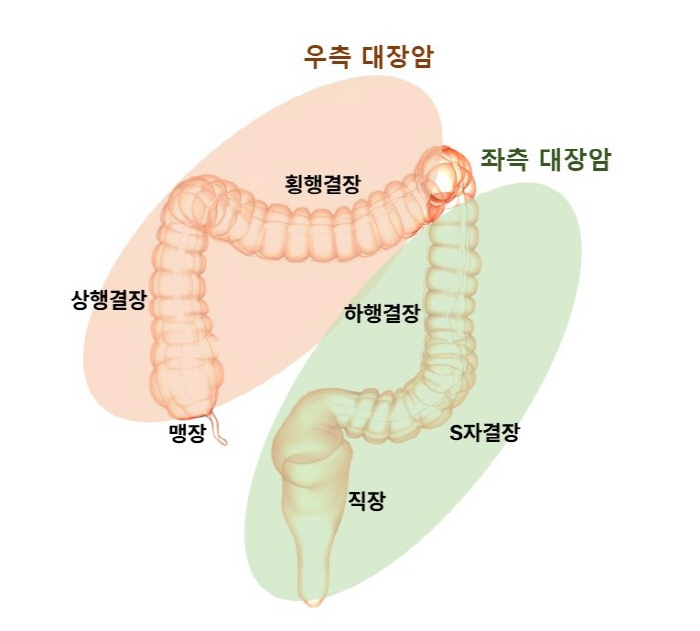More than half of female colorectal cancer is on the right side...The path of cancer is different
|
Colorectal cancer is a malignant tumor that occurs in the appendix, colon, and rectum that digests and discharges food, recording 33,158 cases per year in Korea (National Cancer Information Center, 2022), ranking second in the overall cancer incidence rate with a slight difference from thyroid cancer. Recently, there is a misunderstanding that it is male cancer due to the high incidence in young men, but in reality, about 40% of patients are women and have the third highest incidence among female cancers.
As such, colon cancer is common in both men and women, but the pattern of disease according to gender shows distinct differences. In women, the proportion of right (e.g., ascending colon) colorectal cancer exceeds half and progresses in flat serrated adenoma, making it difficult to diagnose early, while men have a high proportion of left (e.g., descending colon) colorectal cancer and start with coronary adenoma, with an average onset of disease five to seven years earlier. These differences suggest that the gender characteristics of colorectal cancer may differ not only in the location of development but also in the path by which cancer develops and grows.
|
Professor Kim Na-young's research team conducted a study to compare and observe how tumors develop and interact with the immune system at the genetic level based on colorectal tissue samples of 378 patients treated at Seoul National University Bundang Hospital.
As a result, the expression of the antioxidant-related 'NRF2' gene and immune checkpoint protein 'PD-L1' in the right colon cancer patient group of women was found to be the most significant. The NRF2 gene plays a role in regulating intracellular oxidative stress and helping to survive, and the PD-L1 protein inhibits immune cell attack.
In other words, female right colorectal cancer suggests that cancer cells develop in a favorable survival environment to protect themselves and avoid attacks by the immune system, and molecular biological action plays a major role in cancer development, which differs from other colorectal cancers, which are mainly caused by chromosomal instability caused by genetic mutations, in the early stages of development.
In addition, the research team confirmed that the expression of 'COX-2', a gene involved in inflammatory responses throughout colon cancer, and the inflammatory cytokine 'IL-1β' gradually increased according to the stage of colon cancer progression.
This suggests that inflammation and the immune environment interact to play a key role in colon cancer formation and progression, supporting that the immune environment is greatly disturbed in female right colon cancer, where the immune evasion function of PD-L1 protein is activated, and can act as a path for colon cancer development.
The results of this study are meaningful because they can be used as a biological basis for the development of 'immune anticancer drug', which is called a third-generation anticancer drug, and for patient selection and treatment response prediction.
Professor Kim Na-young said, "This study has gone beyond the existing approach of classifying colorectal cancer only as the location or stage of the organ, and confirmed at the genetic level that the way cancer cells work itself can vary depending on gender and site of occurrence. Especially in the case of right colorectal cancer, which is common in women, the genetic pathway related to immune avoidance is working more clearly, which can be an important basis for predicting future immune treatment responses or establishing customized treatment strategies."
Meanwhile, this study was conducted with the support of the 2019-2024 Korea Research Foundation's mid-sized researcher support project, and was recently published online in the international journal 『Cancer Research and Treatment』.
|
This article was translated by Naver AI translator.






